

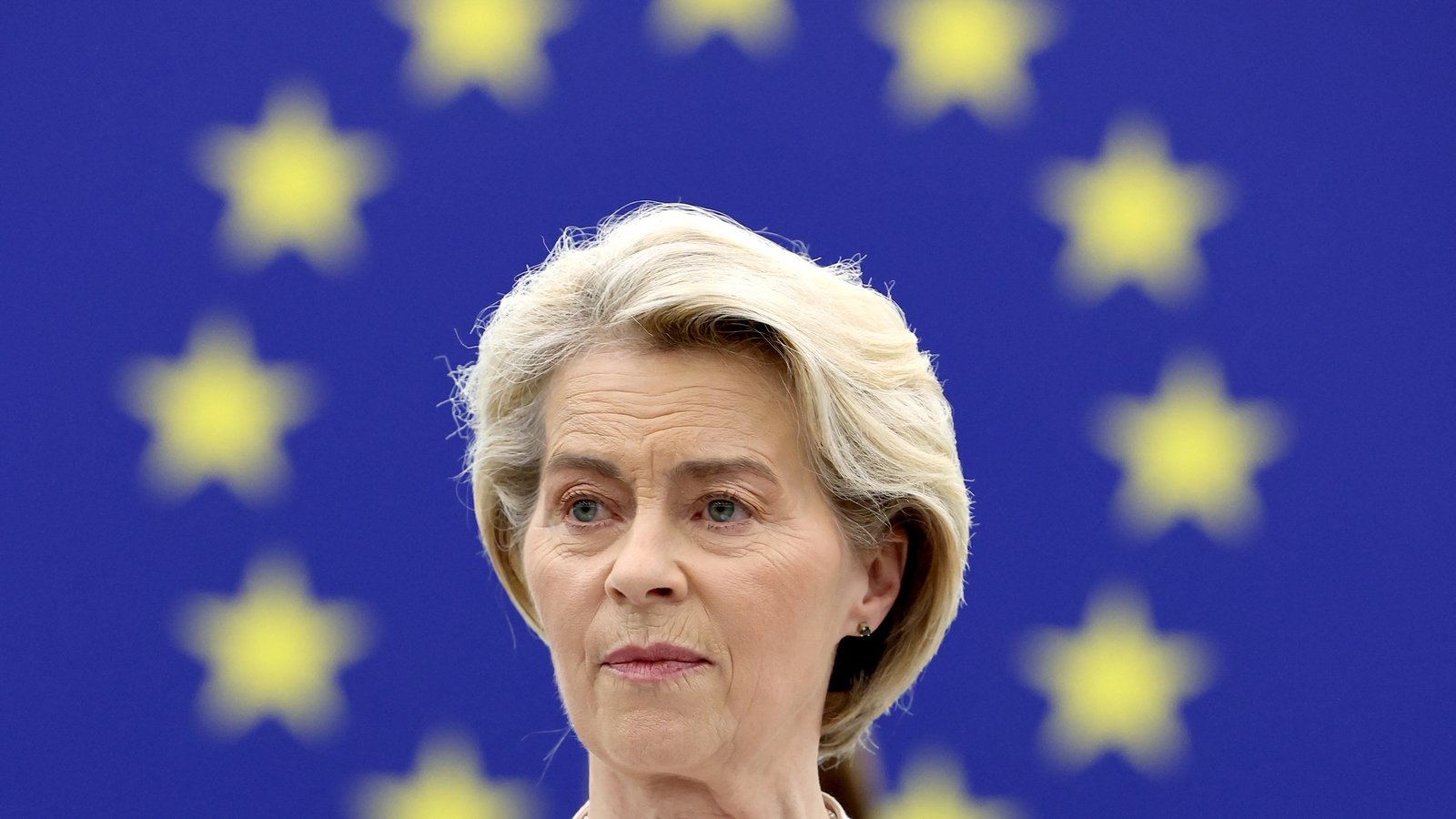
If Ursula von der Leyen thought that winning a European Parliament vote in July was the biggest hurdle she would face in launching her second mandate, the machinations over actually forming the new European Commission have proven just as fraught.
Her call for a gender-balanced commission has fallen on deaf ears.
There are too many capitals chasing too few economic portfolios, and political groups in the European Parliament have been threatening to derail the new commission if the ideological balance isn’t to their liking.
Ms von der Leyen was supposed to unveil the new commission this week, but that plan has been scuppered by a row in Slovenia over the delayed parliamentary approval of its nominee.
The event has been switched to Strasbourg next Tuesday, but even that is now in doubt.
It’s understood that the commission president and her team have been informing capitals this week of the provisional allocation of portfolios.
Already there has been push back from as many as eight member states who are unhappy with what their candidates are getting.
Some of the churn is down to the gender issue.
Ms von der Leyen asked capitals to send a male and female nominee so that she can have a gender-balanced college of commissioners.
So far, only nine out of 27 nominees are female.
In Slovenia’s case, the government had nominated Tomasž Vesel, a former president of the court of auditors.
Ms von der Leyen was said to have been unhappy with that choice, and suggested in a meeting with prime minister Robert Golob that if he wanted a particular portfolio, a female candidate would be better.
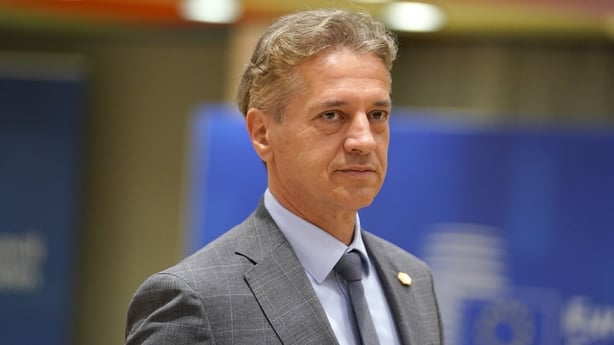
Initially, Mr Golob stuck to his guns, but when Mr Vesel (reluctantly, according to reports) withdrew his candidacy, the prime minister nominated Marta Kos, a former ambassador to Switzerland.
The opposition smelled blood, and have refused to endorse Ms Kos until Mr Golob publishes a letter from Ms von der Leyen on the issue.
“People are claiming that she’s definitely overplaying her hand,” says one EU official.
“Member states aren’t very happy. But she’s looking at the nominees and thinks some of them are poor, and she knows she needs strong people.”
In reality, tensions between Ms von der Leyen and national capitals have been there from the start, especially over the gender issue.
Sources suggest that the Taoiseach Simon Harris lecturing the commission president over what the EU treaties say (i.e., that member states are entitled to send one candidate) had not gone down well, and that she is equally entitled, under the treaties, to allocate whatever portfolio she sees fit.
In an interview with Pat Leahy of The Irish Times, the Luxembourg prime minister Luc Frieden said: “No… that is not the way prime ministers – at least those that I know – talk with president von der Leyen”.
Yet, even if her problems may be a function of domestic political expediencies, national capitals may be inclined to keep her on a short leash in her second term.

Parceling out commission jobs is not what it used to be.
In the past 15 years, the European Union has forged new powers and competencies through a series of rolling crises, from the financial crash, to migration, to the Covid-19 pandemic, to Russia’s war against Ukraine: competencies that member states have been largely willing to bestow.
The commission has powers it did not have before, and some positions are highly coveted.
At the same time, Ms von der Leyen appeared in her first mandate to have adopted a more presidential, top-down style.
With President Emmanuel Macron of France and Olaf Scholz, the German chancellor, both facing grueling domestic challenges, the temptation to curb that style will be there.
“National leaders are being careful not to give her too much space,” says Eric Maurice, an analyst at the European Policy Centre (EPC), “especially as France and Germany are having difficulties.
“Collectively they might see the danger for them of von der Leyen filling the void left by Macron and Scholz.”

And yet, constructing a new commission is always a perplexing Rubik’s Cube.
“It’s a complex process,” says one EU diplomat. “You have to do this endless balancing of geography, politics, gender, large versus small, old versus new member states, and then how you structure it within the new commission.
“If you have 27 commissioners and there are maybe 10 to 15 interesting jobs, that doesn’t make it easy either.”
The commission is the executive branch of the EU, meaning its 27 member commissioners – nominated by national capitals – initiate new policies, ensure that EU law is properly applied, and generally protect the European interest.
They are held in check by the European Parliament and member states, who scrutinise, amend and then adopt (or reject) the commission’s policies.
The political complexion of the commission reflects the balance of power across the continent.
Of 27 national governments, 12 are currently led by von der Leyen’s centre-right European People’s Party (EPP), and it was national leaders who endorsed her second term at an EU summit on 27 June.
Complicating that is the rise of the far right: eight member states have hard-right parties either in government or supporting a government, and in June’s European elections, 187 radical or far right MEPs were returned, compared to 118 in the outgoing parliament.
There is still a pro-EU majority, made up of the centre-right, centre-left, liberals and Greens, so political groups like the Socialists & Democrats (S&D) believe that they are entitled, as defenders of the European interest, to be strongly represented in the new commission.
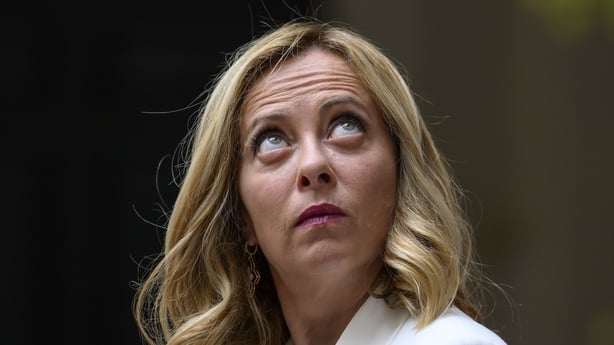
This is a new complication.
The hard-right Italian prime minister Giorgia Meloni, whose MEPs sit in the European Conservatives and Reformists (ECR) group, has demanded an executive vice-president position and a top economic portfolio for her Europe minister, Raffaele Fitto.
The S&D then promptly threatened to vote against the new commission as a whole, accusing Ms von der Leyen of “proactively bringing the ECR into the heart of the commission”.
The storm over Mr Fitto’s role has intensified the horse-trading between von der Leyen’s team and national capitals, and it could have a bearing over what kind of portfolio Ireland’s nominee Michael McGrath gets.
Speculation over his new role has waxed and waned this week. Fisheries, justice, research and innovation and a fiscal role have all been mentioned by sources.
The Government has insisted that he should get a strong economic portfolio.
The challenges are several: Mr McGrath is one of four former finance ministers pursuing an economic portfolio, and they are already up against commissioners who are staying for second terms and who are likely to get economic jobs.
These include the former Latvian prime minister Valdis Dombrovskis, the former Dutch finance minister Wopke Hoekstra, and Theirry Breton, the outgoing French internal market commissioner.
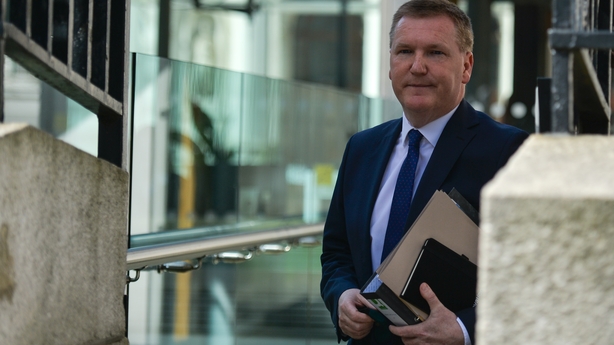
Michael McGrath is from the Renew political group, which came fifth in the European elections, and even if Ms von der Leyen is not minded to downgrade Ireland’s portfolio because his Fianna Fáil MEP colleagues voted against her in July, he is still in a difficult race.
Renew will have five commissioners.
One, Kaja Kallas, the (female) former Estonian prime minister, has already been nominated as the EU’s foreign policy chief; Thierry Breton is male, but French; Belgium has put forward Hadja Habib, the outgoing (female) foreign minister while Slovenia’s female candidate is still pending parliamentary approval.
“Then Ireland are sending a man,” says one EU official, familiar with discussions.
“Even if she wasn’t punishing him because of the parliament vote, of those five on that list of Renew candidates, McGrath is at the bottom of it.”
Mr McGrath himself is understood to be hopeful that he will be judged on his merits alone.
He made contact with a number of commission officials and staff at Ireland’s permanent representation to the EU in Brussels during the summer, and has met 12 commissioners in recent days, including Kaja Kallas and the outgoing European Commissioner for Economy Paolo Gentiloni. (The Taoiseach spoke to Ms von der Leyen by phone about Michael McGrath’s candidacy on 22 June.)
On 27 August, Mr McGrath underwent a 30 minute interview with the commission president and her chief of staff, Björn Seibert.
It’s understood that the meeting was cordial, and that Ms von der Leyen did not raise the issue of the Fianna Fáil MEPs, nor the fact that Ireland had very early and very publicly declared it was only sending one (male) candidate (several sources suggest that she had been angered by both issues).
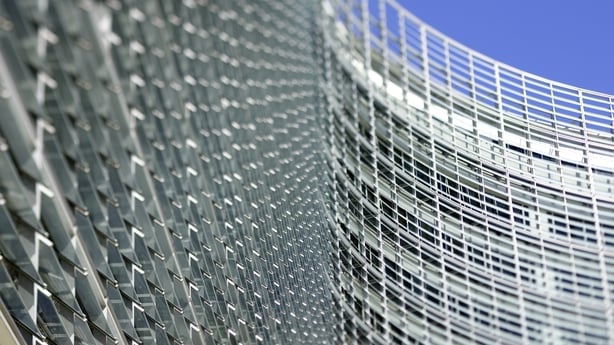
Ms von der Leyen asked which portfolio he would be interested in, and Michael McGrath is understood to have indicated broad areas such as trade, economic security, competition, research and innovation.
When the commission president asked if there were other areas, if those portfolios were not available, he demurred.
One portfolio that has been mentioned is Research, Science and Innovation, held by Máire Geoghegan-Quinn in 2010-2014.
That could be presented as an economic position given the huge volumes of research funding disbursed through the Horizon programmes.
In the wake of former ECB president Mario Draghi’s long-awaited report this week on the future of European growth and competitiveness, it’s expected that the portfolio will be beefed up considerably on the innovation and SME (Small and Medium Enterprises) growth side.
There is some speculation that he could, however, secure a more central economic position.
The European Commission is carved into directorates-general (DGs), effectively civil service departments which, roughly speaking, correspond to the 27 portfolios.
However, commission presidents can, according to their political needs, decide what policy areas portfolios should cover, and while some positions have a straightforward DG attached, other commissioners can sit atop a number of DGs, or have no DG at all.
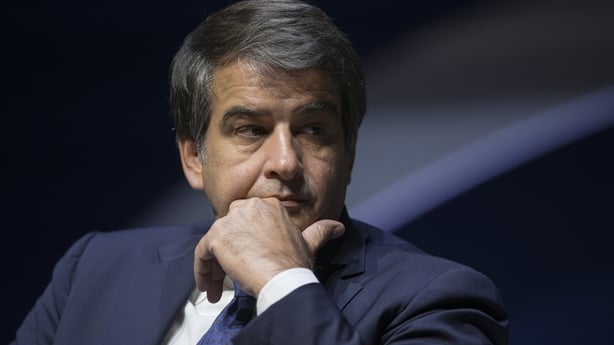
In her first commission, Ms von der Leyen created three Executive Vice-Presidents (EVPs) who presided over policy clusters, led by lower-ranking commissioners.
According to a well-sourced report by Die Welt on 4 September, Ms von der Leyen will have four Executive Vice Presidents – including the Italian candidate Raffaele Fitto, tipped to become the commissioner in charge of the economy, cohesion funds, and the €800 billion Covid-19 recovery fund.
Traditionally, economic posts have required a tight political balance between north and south, i.e., between fiscal conservatives (known as the “Frugals”) and economic liberals.
In the outgoing commission, that balance was struck between Latvian Valdis Dombrovskis, the centre-right trade commissioner, and Paolo Gentilioni, the former Italian prime minister, who held the economy portfolio.
If Mr Fitto is successful in becoming an Executive Vice President (EVP), that would put in him charge of an economic cluster, which includes cohesion and Covid-19 recovery funding, but leave open a separate portfolio that would be attached to DG Ecfin, the directorate covering economic growth, employment and financial stability.
The four former finance ministers – Michael McGrath, the Dutch candidate Wopke Hoekstra, the Austrian Magnus Brunner and Portugal’s Maria Luís Albuquerque – would be candidates.
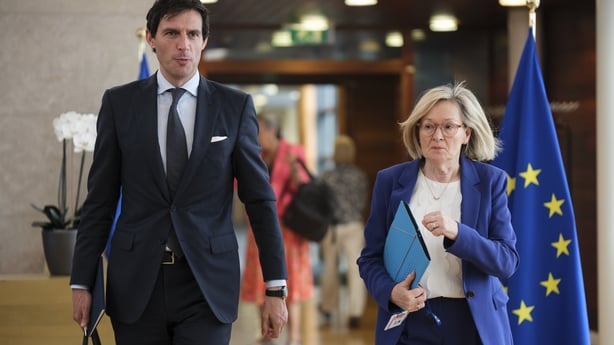
However, Mr Hoekstra, on his second term, is expected to get trade or industrial policy, while it is unlikely that President Macron would not want an Austrian in charge of the EU’s fiscal policy (Mr Brunner has been linked with the competition portfolio).
Maria Luís Albuquerque has been linked with Mairead McGuinness’s former role as commissioner for financial services.
That could leave the position open for Mr McGrath, who is in the same political family as Emmanuel Macron, to take that fiscal policy role.
“Von der Leyen said she wants two things from commissioners,” says one source. “Competence and loyalty. McGrath’s extremely competent, and he’s also very loyal. I don’t think you’ll find anybody who would say otherwise.”
One EU diplomat added: “You’ll have [French commissioner Thierry] Breton in charge of internal market, competitiveness and industry, [Spanish nominee Teresa] Ribera in charge of the Green and Digital Transition, and Fitto in charge of the financial side of these,” said the diplomat.
“I would imagine that Austria, the Netherlands, and Ireland (plus Germany, plus some of the Nordics), would want there to be some kind of counterbalancing force within those clusters, in order not to make it a completely southern European affair when it comes to the areas where we spend most of our money.
“This is part of a conversation that is very much ongoing, how you structure that in such a way as to assuage precisely those concerns.”
Irish officials have downplayed such an outcome.
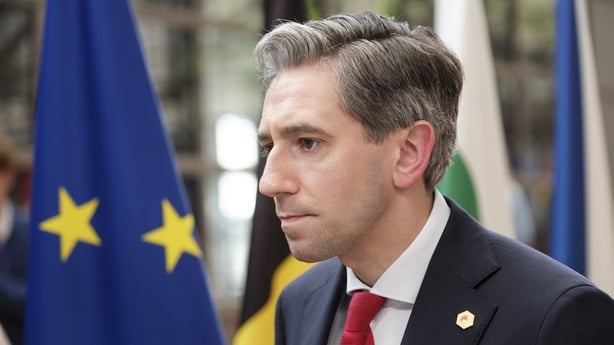
One source, however, pointed out that Ireland is not regarded as hawkish like Austria or the Netherlands, but at the same time, as a net contributor to the EU budget, is viewed as a country that believes in strong public finances.
“We tend to be a bridge between the Frugals and the others,” said the source.
Much will depend on last minute phone calls. The Taoiseach and Tánaiste spoke to Ms Von der Leyen on 5 September, and there were further contacts across this week.
The elaborate jigsaw manoeuvres could fall victim the to hostility towards Raffaele Fitto getting an EVP position.
The centre-left feel their support for Ms von der Leyen in July’s parliamentary vote has been taken for granted, and the Fitto affair has exacerbated another gripe: that Ursula von der Leyen has not offered to keep Luxembourg’s outgoing commissioner Nicolas Schmit on in Brussels.
A senior member of the socialist family, Mr Schmit would have been one of only a handful of centre-left commissioners; the Luxembourg prime minister, now from a different political party, appeared willing to let him stay, but Ms von der Leyen has apparently turned him down.
“Our message to von der Leyen is,” says Labour MEP Aodhán Ó Riordáin, “we went in and supported you [in the July vote]. Schmit is our guy, he’s clearly important to us, his agenda is clearly important to us. His reappointment would have made us feel as if we are in this together.”

All of this suggests a heavy weekend of horse-trading, as the commission president and her team stick to their guns in seeking a gender-balanced commission of experienced candidates, while national capitals bridle at having their arms twisted or being told their nominees are not good enough.
It already looks like the European Parliament hearings into the new commissioners-designate will drift into November, instead of October.
Ursula Von der Leyen could still struggle to get the final list of names and portfolios ready to be unveiled in Strasbourg on Tuesday, with the European Commission’s legal service working flat out to see if she can present a provisional slate of commissioners.
“It’s like a game of Jenga,” sighs one EU diplomat. “If you knock out the wrong block, the whole thing might fall down.”